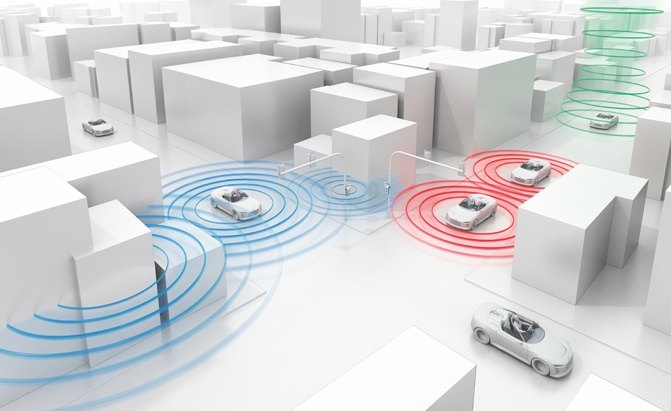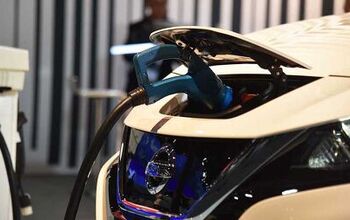Pros and Cons of Connected Cars
The internet has very quickly become inseparable from everything we do.
With connected technologies, we can control nearly all aspects of our lives from the palms of our hands. Automotive technology has moved quickly to adopt and use connected technology. It’s not limited to top import luxury brands anymore, either. Connectivity features are now in the cars and trucks everyday folks drive. Here’s a look at the pros and cons of connected cars.
Pros and Cons of Connected Cars
Connected Cars Make Life Easier
Anyone who’s taken their family on an extended road trip knows how the introduction of mobile devices has made long trips that much more bearable. Hotspot technology is commonplace in many vehicles. All passengers can now freely browse the web on the go, wherever LTE networks are available. Automakers also offer a variety of functions through mobile apps. Owners can check fluid life, fuel levels, maintenance schedules, gas levels, and even check if the windows are open or if the doors are locked. Advanced systems offer integration with systems like Alexa, enabling owners to start their cars, set climate and other features by voice.
ALSO SEE: Top 10 Cheapest Cars with Standard Apple CarPlay and Android Auto
But a future enhanced by connected cars goes beyond the driving experience. Digital wallets connected to your car would allow you to pay for gas as you arrive at the pumps. Combined with satellites, internet connected cars let owners to quickly track stolen cars, as one Tesla owner aptly demonstrated. Many connected cars (like ones with OnStar, for example) automatically engage with emergency services when the airbags deploy or if a crash is detected. They can provide emergency services with location, name, address, and basic telemetrics.
Manufacturers have even begun issuing software updates for the vehicles over the air, without having to visit a mechanic. Internet-connected cars give automakers easy and quick access to vehicles to fix software issues. “Over-the-Air updating allows infotainment updates such as bug fixes or user interface enhancements to be done without the customer having to set foot in their dealer,” Honda says. For example: After a very public fatal crash, Telsa released a significant update to its AutoPilot system in 2016.
The biggest advantages of internet connected cars are still coming, however. Connected cars today give us a glimpse into how autonomous cars might later make use of internet connectivity. Traffic data, weather data, owner remote controls, and even data from other autonomous cars or from the infrastructure will constantly flow into these vehicle’s computers.
There Are New Risks Introduced
In 2015, a Jeep Grand Cherokee was famously cracked by a pair of security researchers. With nothing more than a laptop, they were able to hack, access, and then control most aspects of the Jeep’s system, including driving it off the road. It changed how the industry saw cybersecurity.
Even the most technology-focused companies were not immune. In 2016, Tesla was hacked by a team of Chinese researchers . The team was able to override the network of computers that had control over driving and comfort features. Thankfully, they provided details of the exploit to Tesla, which released an over-the-air update to its customers, ensuring all Tesla cars were patched.
There is also a privacy concern for personal data in connected cars. But, as noted security researcher at Cruise Automation Charlie Miller explains, “I don’t think connected cars introduce a significant privacy concern beyond what consumers are already exposed to.” We already give social media anything our connected cars might, he said. “Cars represent one more opportunity to lose a little bit of our privacy, but like most of those other areas, we can choose not to use them.”
So, how do technologies like Android Auto and Apple CarPlay affect security? “Android Auto and Apple CarPlay don’t open up much in the way of attacks that weren’t already there,” Miller explains. “These technologies don’t introduce a significant attack vector [a new hole). They provide built-in interfaces for our smartphones to interact with the head unit in the vehicle. However, just about every car already has such an interface in Bluetooth, which, by the way, was successfully attacked in 2011 by a team of academic researchers.”
The Industry is Taking Cybersecurity Seriously
After the famous Jeep incident, the industry took notice. Cybersecurity was taken seriously. “Since that time, when we speak with people from automakers, they tell us that the demonstration we did helped them get their management to prioritize security, and they now have hired more people and have larger budgets for this important area,” says Miller. He cautioned, however, that “it is really hard to measure automotive security, so it is difficult to say definitely.”
Tesla leads a program that rewards cybersecurity researchers with bug bounties. A bug bounty is financial reward for individuals or groups who find a vulnerability in Tesla’s software systems. Depending on the severity of the vulnerability, Tesla rewards between $100 and $10,000 USD.
Modern companies now understand the importance of including encryption and other cybersecurity measures into their internet connected cars. “All Mercedes-Benz Vehicles possess extensive security as well as anti-theft protection systems,” Mercedes said in a provided statement. “When enhancing our protective mechanisms, we take into account the latest knowledge about criminal methods and about attacks on security systems,” it continued. When pressed, little more detail was given about what, exactly, those mechanisms are, other than it’s an important part of current product development.
Honda uses additional access security to help owners prevent unintended access to vehicle controls. Both Honda and Acura apps require customers to use a PIN to protect access. Further still, the system can’t be activated unless the customer has physical access to their vehicle. Communications between car and smartphone are encrypted by automakers, though few offer details about what type of encryption is used, how thorough it is or the protocols. By keeping their cards close, automakers hope the fewer hackers know about how these systems work, the harder they are to crack.
Keeping it Safe
Internet-connected cars do provide a roster of conveniences that legitimately enhance the ownership experience of a car. How much risk are people really exposed to? “Obviously, there is some threat of attack, which is exactly what we demonstrated against the Jeep. However, in practical terms, it is pretty unlikely at this point,” Miller concludes. Hacking cars is not easy, and automakers are doing what they can to keep it that way. Miller hopes that, thanks to their Jeep demonstration, we can enjoy using connected technologies in cars without worrying about security.
More by Dan Croutch



































Comments
Join the conversation